|
Yep, it's been 9 years. And I'm not even there yet. I don't know if I'm getting closer, but what I do know is that I'm trying my best to do everything I can to get there, one step at a time. For those who think I've had it easy, let me reiterate. It took me 9 long years. And I'm still on my way. All by God's grace. Soli Deo Gloria. ~ccj, Cambridge, 8th May 2022, 19:15
0 Comments
I'd like to reflect on a talk from the Good News Conference, organised by Word on Fire. Videos from the conference were recently uploaded on the Word on Fire Institute YouTube channel, and I'm really enjoying them. I find the timings of these videos to be very apt, as they address the issues and dilemmas I've been struggling with recently, And I believe this is no coincidence, as always. God is great, all glory to Him.
Holistic Education? The talk that I'd like to meditate upon in this post is one by the brilliant and entertaining Sister Josephine Garret. She talks about educating the whole person. Sister Josephine believes education shouldn't be confined just to the mind and the intellect, but it should be holistic and include the physical, the senses, the emotions, the spirit. As a teacher by profession, this resonates with me very deeply. Philosophies of education around the world advocate education of the whole person, but at the end of the day students are mostly tested based on how much they learn at the intellectual levels. Some sort of values are sometimes ascribed to students' achievements in the physical, e.g., in sports. But very few systems care about emotional and spiritual education of the learners. Religious educations exist, yes - but more often than not learners' 'achievements' are almost always assessed based on how well they perform in an academic test of some sort. If you want to apply to study in a place like Cambridge, for instance, what criteria would the admission and scholarship boards be looking at? Mainly academic qualifications, i.e., how well you do in standardised tests. So school teachers aren't really to blame when they tend to emphasise on the academic - most teachers just want to see their students excel, and to do that they often have no choice but to conform to the demands of the systems of the world. But can we change this? And now these three remain: Faith, Hope and Love. But the greatest of these is Love. 1 Corinth 13:13 Faith and Hope I've been struggling with understanding the difference between faith and hope. Love is easy to distinguish, but telling faith and hope apart is a bit tricky, I feel. All my life I always feel like they're almost one and the same. I always hold on to this definition of faith from Hebrew 11:1: Now faith is confidence in what we hope for and assurance about what we do not see. But I'm not sure I understand it fully. I want so much to understand what faith means, because it's what touches God's heart. It's what pleases Him. It's the 'wow' factor He's looking for in us, it's what impresses Him. "Your faith has made you well." (e.g. Mark 5:34, Matthew 9:22, Luke 17:19) "Your faith has saved you." (e.g. Luke 7:50, Mark 10:52) The Gospels record many instances of Jesus being "amazed" by someone's faith. For example, "When Jesus heard this, he was amazed at him, and turning to the crowd following him, he said, “I tell you, I have not found such great faith even in Israel.” Luke 7:9 Though there were times when Jesus could also be (sadly) amazed by lack of faith. He could not do any miracles there, except lay his hands on a few sick people and heal them. He was amazed at their lack of faith. (Mark 6: 5-6) Without faith, it's impossible to please God: “And without faith it is impossible to please God, because anyone who comes to him must believe that he exists and that he rewards those who earnestly seek him.” (Hebrew 11:6) So, what is Faith? Truly I tell you, if you have faith as small as a mustard seed, you can say to this mountain, ‘Move from here to there,’ and it will move. Nothing will be impossible for you. (Matthew 17:20) In my understanding, faith is believing that God can. That God is able. That He can and is able to do the impossible. But what about hope? I found myself going back to Hebrew 11:1 again and again. Now faith is confidence in what we hope for and assurance about what we do not see. Confidence in what we hope for. It seems like hope is part of faith, it provides part of the definition for faith. So, what is Hope? I've been pondering upon this, about what hope means, for many years. But this morning, during my quiet contemplation, I suddenly realised what hope might mean. I've been praying for God to intervene in my life. I trust that He can do it. I know that He is able to do the impossible. So, does that mean I have faith? I guess so. But at the same time, I also wondered why I still struggled a lot with doubts. "I trust you, Lord!" I cried in my heart of hearts. "Please get rid of these doubts within me." I prayed for more faith. I prayed for increased faith. This has been my prayers for many months, actually. But this morning, it felt as if I was praying more intensely than usual. "Answer me, Lord!" "Why am I still doubting?" "I believe, Lord! Help my unbelief!" "Forgive me, Lord. Forgive me for my lack of faith!" Then I felt God speaking softly to my heart. "Your faith, dear child, pleases me." I didn't see it coming. "Really, Lord?" "Yes." "So, why am I miserable?" "You need to work on hope." I didn't know how to respond. Then I said, meekly. "I don't know how, Lord." "Do you believe I can?" "Yes." "Do you believe I'm able to?" "Yes. Yes!" "Do you believe I want to?" (Silence). "You don't think I'm willing. Why?" "Because I'm unworthy." ? "You need to work on hope." Then it all started to make sense. Faith is believing that God is great, powerful, and mighty. He can do it for me. He is able to do it for me, no matter how impossible the situation seems. Hope is believing that God is loving, kind, and compassionate. He wants to do it for me. He is willing to do it for me, no matter how undeserving I think I am. And the greatest is Love. Yes, it's the greatest - because faith and hope can't exist without Love. ~ccj, 26102021 #breadcrumbs I've decided to take a break from social media for a while. I don't have much appetite for Facebook, Instagram, or Twitter anymore these days, but I still need to keep them because of Going Digital ELT and other research-related work. I guess what I can do is go back to the old way of using social media, which is by logging in through my laptop. Having the apps on my mobile devices makes it too easy for me to succumb to the arbitrariness of scrolling mindlessly through the feeds and stories and photos and memes for a hundred times a day, and afterwards wonder where the time flies. This unfruitful activity is taking so much space in my life, when I know I should be doing other more important stuff. So I deleted all social media apps from my devices, but kept the accounts. So what are these 'more important stuff' about? Here are some:
There's clearly a pattern here - and one that's not too hard to fathom. There are lots more, like spending more time in prayers and studying God's words, serving and loving my family and friends, exercising (yesss!!!), and getting enough sleep. But these are important things that don't cost money. Interestingly, I think I'm slightly better at utilising free stuff than I am at deriving full benefits from my investments (except for the exercising part). Anyway, I'm putting these here as a way of establishing accountability. I'll try to post my progress for each commitment (both paid and free) on this blog as often as I can. Soli Deo Gloria. -ccj, 15 May 2021, 9.01am On the last day of 2020, my social media feeds were lined from top to bottom with people reflecting on their 2020 highlights and biggest achievements of the year. A friend urged me to share what I would consider my biggest achievement. She thought it necessary to celebrate every single achievement, no matter how small, to make 2020 (which undoubtedly had been the hardest year for many) worthy of celebration. I racked my brain, but I couldn't find anything worth sharing. I didn't think I had achieved anything - I had been spending too much of my 2020 on finding healing and trying to survive. But I posted this on Facebook, nevertheless: I guess my friend wasn't too impressed with that - but I honestly believed that that was my biggest achievement of the year. I had procrastinated doing that for too long, so to be able to enter the new year with an organised closet was a magical feeling. But skimming through my friends' posts on my feed got me thinking. Is this what a brand new year is supposed to be about? Collecting trophies and achievements? Well, there's nothing wrong with that of course; it's never a bad thing to have goals and ambitions. But what if I don't want to have any achievement to brag about at the end of the year? What does "achievement" really mean? I asked a dear friend of mine what she thought was her biggest achievement of the year. This was her reply: "My biggest achievement is remaining a Christian till the end of 2020. And not running away from God when things became hard." She also wrote: "This was God's grace in an ultimate sense, but it also felt like a major achievement somehow." God's grace. But aren't all achievements God's grace? I don't think I would ever be able to lift my lazy bones to clean that poor closet of mine if it wasn't for God's grace. I'm just a book
In addition to overwhelming posts about successes and achievements (which I enjoyed reading - they were like refreshing oasis in the midst of what seemed to be a parched year), I was also bombarded with newsletters about books that had impacted the world in 2020. I love books, and I always welcome these newsletters as they give me ideas on what to put in my reading list for the following year. The books that shaped 2020 from Penguin is one of my favourites, as well as the Best Books 2020 from Goodreads and Most Anticipated Books of 2021 from Times. As I tried to decide which books to include in my list, I did more than just reading the reviews and synopsis. I also tried to learn as much as I could about the authors. The authors, to me, are always as important as (if not more important than) the books. I pondered upon it this morning, and this thought came to me: People can't enjoy a book without appreciating the author. People can't celebrate a person without glorifying the Creator. I was reminded then that I'm just a book. Without my Author, I'm nothing. In the Problem of Pain, C.S. Lewis wrote: "Man is not the centre. God does not exist for the sake of man. Man does not exist for his own sake. "Thou hast created all things, and for thy pleasure they are and were created." We were made not primarily that we may love God (though we were made for that too) but that God may love us, that we may become objects in which the divine love may rest "well pleased." " When I celebrate my achievements and blessings, I should be giving Him glory. He's the Creator who made this book. He's the Author who writes my story. Have a blessed 2021. ~ccj, Duvanson, 9.54am I've never heard of Claude Shannon, till I came across this article about him on Quanta Magazine. Shannon was a genius - a scientist, an electrical engineer, and a mathematician - whose groundbreaking work on communication made possible the Information Age as we know it today. I know I should read up more about him, about his life, and about his work (and I do intend to, soon) before I should dream about writing a post about him - but I need to make note of how much this article has inspired me. The author David Tse described Shannon as a "lone genius" who "invented the future." I'm not an engineer or a mathematician, and although I'm interested in Information Technology, it's quite unlikely that I would ever have to refer to any of Shannon's writings for my own research in social science (at least for now). But I'm drawn to his approach to the pursuit of knowledge. In this post, I'd like to list down lessons I learned from Shannon's scholarly life as described by Tse in his article. These are lessons that I hope to emulate in my own academic journey, and also in my life in general. Lesson 1: Aim big The article revealed how Shannon's work had been impactful since the very beginning. Upon graduating from the University of Michigan with a Bachelor's degree in electrical engineering and mathematics, Shannon wrote a thesis for his Master's at the Massachusetts Institute of Technology. The work ended up being transformative - one that "is now considered to have been the starting point of digital circuit design." Shannon was clearly ahead of his time. But after achieving a success of this magnitude, he didn't stop there. He moved on to a bigger goal, which was to transform the way humans communicate. Lesson 2: Look for a unifying point (this might take some time, but it's okay) Before Shannon published his seminal work A Mathematical Theory of Communication in 1948 (which took him a decade to complete), communication systems had always been about "specific sources" and "physical medium." Shannon was not satisfied with complying with the way things were. He was brave enough to think out of the box, to ask a question that no one in the field seemed to have asked before. He was looking for "a grand unified theory for communication," - and he found it. I learned that this philosophy is applicable not only in academic, but also in life. I'm stating this because this lesson resonates with me in more ways than one. Recently, I've been reflecting on the value of finding a unifying point that would harmonise the different aspects of my life, as opposed to treating them as disparate entities. Modern advice seems to advocate compartmentalisation, and for a long time, this is an ideal I've been subscribing to. The pandemic, the lockdowns, having to work from home while simultaneously juggling the needs of my family have made compartmentalising very difficult - almost impossible, actually. Have I been doing it wrong all these whiles? Life consists of different aspects - yes. But these different aspects are so overlapping and intricately intertwined; I can't do one without the other. Maybe compartmentalising, drawing boundaries, and separating different aspects of life as if they're totally unconnected aren't the best ways to go. Maybe harmonising everything through one unifying point is something that I should consider doing more seriously from now on. The unifying point might be different from person to person. I have decided that my unifying point should be my faith. I hope to write more about this in a future post. Lesson 3: Simplicity is key Tse wrote, "The heart of his theory is a simple but very general model of communication." Then Tse went on to describe how despite its simplicity, Shannon's theory captures some very key insights which are crucial in addressing the main issues in communication systems. A work doesn't have to be complicated to be groundbreaking. I often think (and have been advised to think) that in order to make a contribution in my field, I need to come up with something that's not there yet. In other words, I need to create something new. But Shannon showed that sometimes what's needed is simply to point people towards the right direction. In Shannon's case, it isn't about creating something new. It's about highlighting the obvious stuffs that have gone under the radar because people have been focusing on something else that's more aligned to general intuitions of the day. Tse commented: "Shannon’s general theory of communication is so natural that it’s as if he discovered the universe’s laws of communication, rather than inventing them." How did Shannon do it? Through investing all his time and energy on things that he believes matter. Tse offers that Shannon had focused "relentlessly on the essential feature of a problem while ignoring all other aspects." I've been allowing too many stuffs to clutter my mind in my quest towards contributing something that I hope would be valuable. It's time to declutter my life and make things more simple so I can focus on what matters. Lesson 4: Uncertainty is to be embraced Shannon was the first in his field to observe that "the key to communication is uncertainty." Tse pointed out that this observation "shifted the communication problem from the physical to the abstract." Uncertainty allowed Shannon to use probability to draw up his theory of communication, which is at the same time a theory of how "information is produced and transferred - an information theory." As a result of this theory, Shannon is known as the "father of information theory." I'm aware that this article refers to "uncertainty" and "probability" as engineering / mathematical terms in relation to communication / information systems. But at philosophical level, this truth still holds. Transferring the lesson to my own personal pursuit of knowledge, I'm reminded of instances where some things tend to be generally perceived as concrete, physical, and tangible. Treating these things as being abstract and uncertain might invite raised eyebrows. Being the amateur that I am, I often retract despite knowing that I might find something useful if I press on. It would be far from groundbreaking or world-changing, but what I would discover might be helpful in my pursuit of understanding. And this, I believe, is the main reason why I embark on this journey. Lesson 5: Don't be afraid to be different The article describes how Shannon's theory has led to "counterintuitive" and "unexpected" conclusions. As a result, he was deemed esoteric by fellow engineers of his time. But if it wasn't for his courage to be different, we might not know communication and information systems as we know them today. Tse pointed out that "Shannon's theory has now become the standard framework underlying all modern-day communication systems." Shannon discovered his landmark theory 70 years ago. He passed away in 2001, but his legacy lives on in the technology that surrounds us today and for many more years to come. Familiarity gives me a safe place, a feeling of security, a sense of belonging. It takes a lot of courage to do something that no one else is doing, to be alone, to be perceived as a weirdo. But as evidenced through Shannon's life (and the lives of many other prominent scholars and inspiring people who have changed the world), taking the road less taken is not only worthwhile; it is necessary sometimes. Pruning the Tree versus Adding my Twigs I'll end this post with Tse's concluding paragraphs: "When I started graduate school, my adviser told me that the best work would prune the tree of knowledge, rather than grow it. I didn’t know what to make of this message then; I always thought my job as a researcher was to add my own twigs. But over my career, as I had the opportunity to apply this philosophy in my own work, I began to understand." "When Shannon began studying communication, engineers already had a large collection of techniques. It was his unifying work that pruned all these twigs of knowledge into a single coherent and lovely tree — one that’s borne fruit for generations of scientists, mathematicians and engineers." Pruning the twigs of knowledge into a single coherent and lovely tree. That should be the aim. ~ccj, Duvanson, 10.57pm Tse, David (December 22, 2020). How Claude Shannon's Information Theory Invented the Future. Quanta Magazine. Link
In this post, I like to write about something I learned from my 4-year-old niece Jodi, on the connection between the act of giving and making sacrifices for others. So, my mum bought a new red dress for Jodi, which she hoped Jodi would wear on Christmas day. For some reasons, Jodi didn't like the dress. She said, "It's too big." But it's not. It's just the right size for her. She also said, "I don't think it's me" - which is very odd for a 4-year old to say. Hmm. I have a precocious niece. So, to cut a long story short - Jodi did finally wear that dress. It happened after a long conversation with me in my room. It began with me desperately trying to persuade her - by pointing out how beautiful the dress is, how gorgeous the colour, how it would suit the theme of Christmas. "See, Creamer is wearing a red dress, too," I said, referring to myself. Jodi shrugged, told me that's great, and continued to bang mindlessly on my Yamaha keyboard on full volume. It seemed like it was going to be a miserably unsuccessful attempt, till I felt moved to pray about it in my heart. I asked God if this can be an opportunity for Jodi to learn something about the true meaning of Christmas. I had absolutely no idea what I was praying for at that time, and hadn't a single clue why I said what I said. But right after saying Amen, I felt inspired to tell Jodi about how Moing (that's what Jodi calls her grandma) went to the mall to get that dress for her, despite her difficulty to walk. I told her that Moing paid for that dress with money (Jodi was just learning about how money works). That got Jodi's attention. She stopped playing on the keyboard and asked, "So, Moing has no more money?" I replied, "Well, she still has a little bit." Then I said, "You received lots of presents for Christmas, didn't you?" Jodi nodded. "Did you give anyone a present?" Jodi said no. "How about wearing this dress as a present for Moing?" Jodi said Yes. It wasn't an easy Yes, I could see it on her face. She had tears in her eyes when she uttered that Yes. But it was a most sincere, heartfelt Yes. Jodi really meant that Yes, and she followed it up with her actions. She allowed me to take off the old shabby green dress she had on (it was her favourite dress), and to help her put on the new red dress that Moing had spent her money on, because she loves Jodi so much. I could still see Jodi's face as I put the dress on her - how she struggled to fight back tears. She didn't even want to look at her reflection in the mirror when I told her how great she looked. It wasn't easy for her, I know. I hugged her and told her she has the most beautiful heart ever, and that I'm very, very proud of her. Then we headed to the living room to see Moing. How Moing's face brightened at the sight of Jodi in that red dress! Jodi gave Moing a hug and wished her a Merry Christmas. Then she skipped towards the middle of the living room, and - in typical Jodi's fashion - started to twirl around and around and pretended that she's a ballerina. I think Jodi has decided that the red dress isn't so bad after all. Sometimes it's okay to wear a dress that I think is too big, or that's just "not me," or that I don't want to wear because I like my old one better. Especially if it makes other people happy. And especially when it's Christmas. And getting someone a present doesn't always have to involve giving something away. Lovingly accepting a gift - no matter how I feel about it - is akin to giving the giver a present, too. Merry Christmas! ~ccj, Duvanson, 9.57am |
Archives
May 2022
Categories
All
|
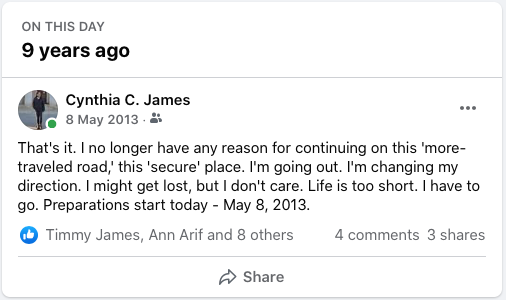
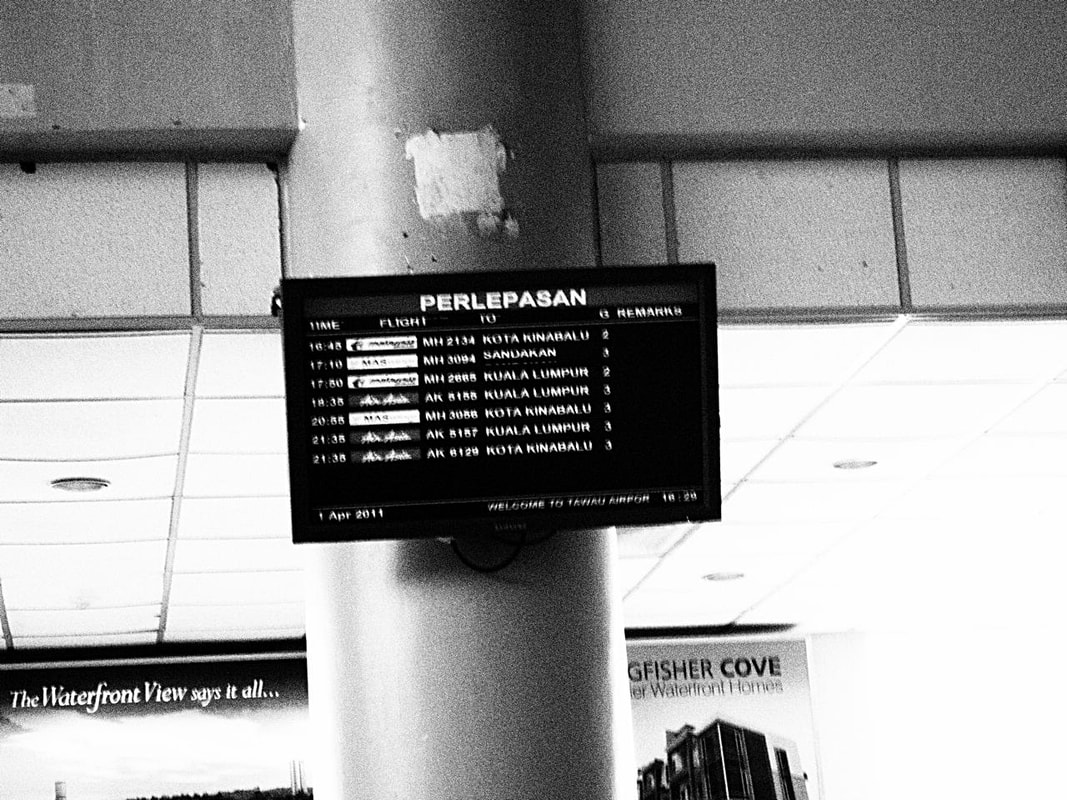
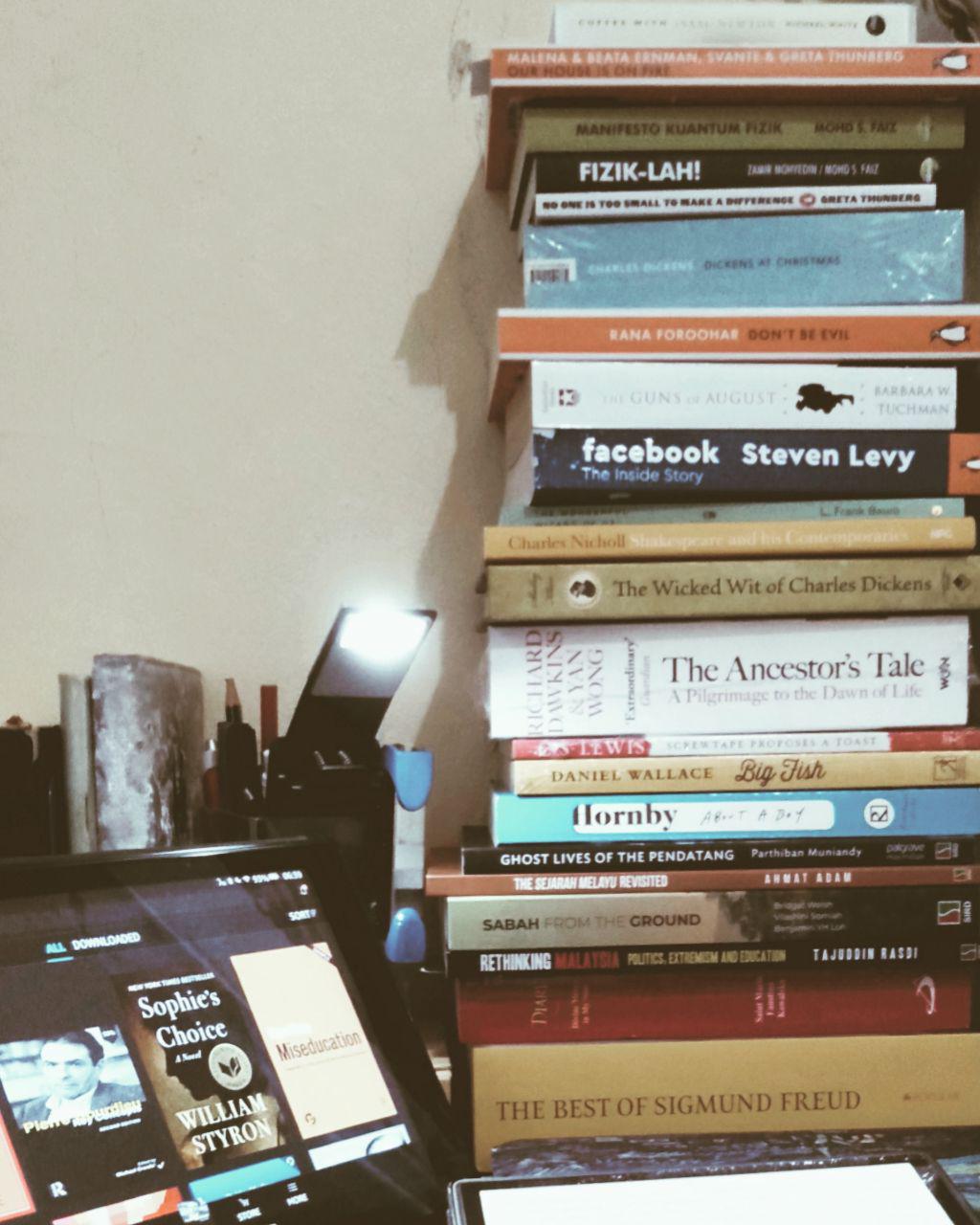

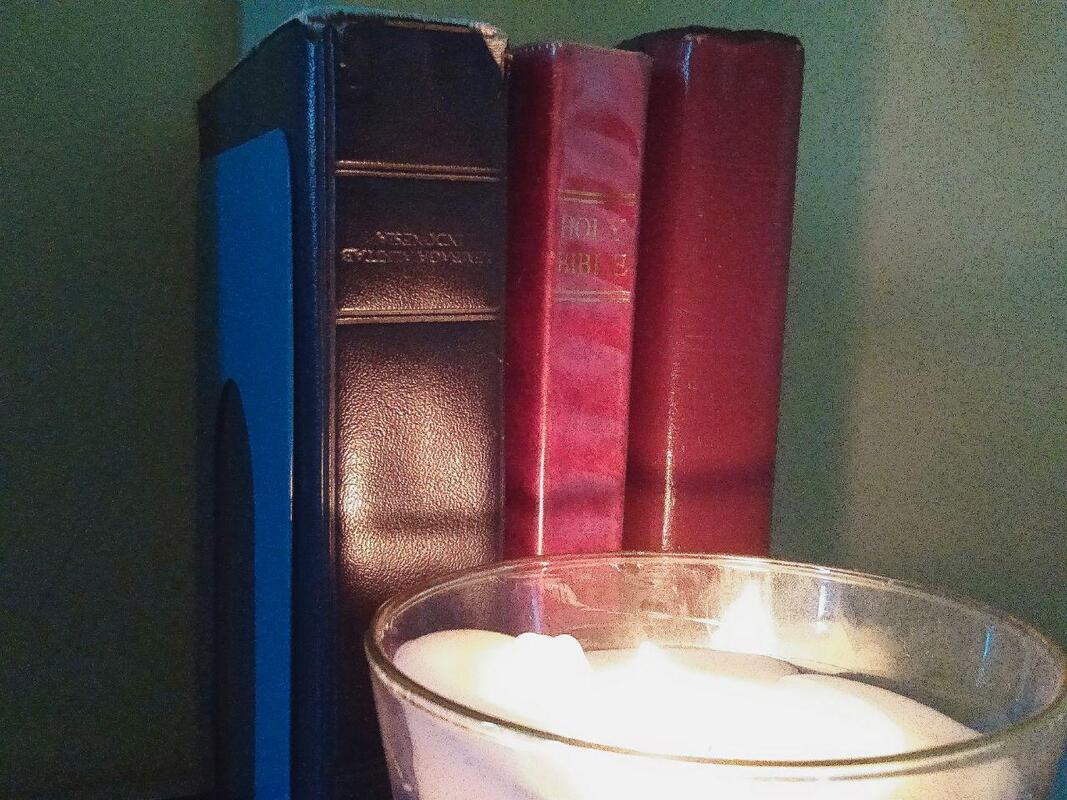
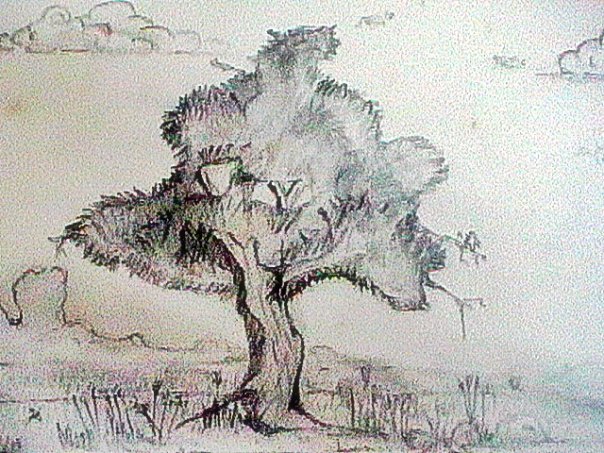
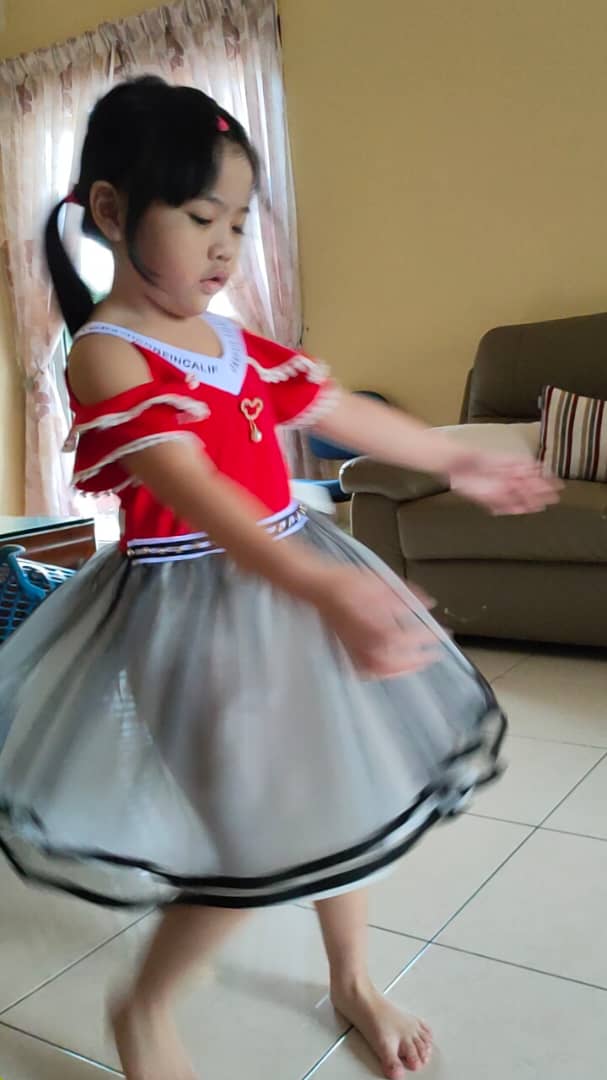
 RSS Feed
RSS Feed